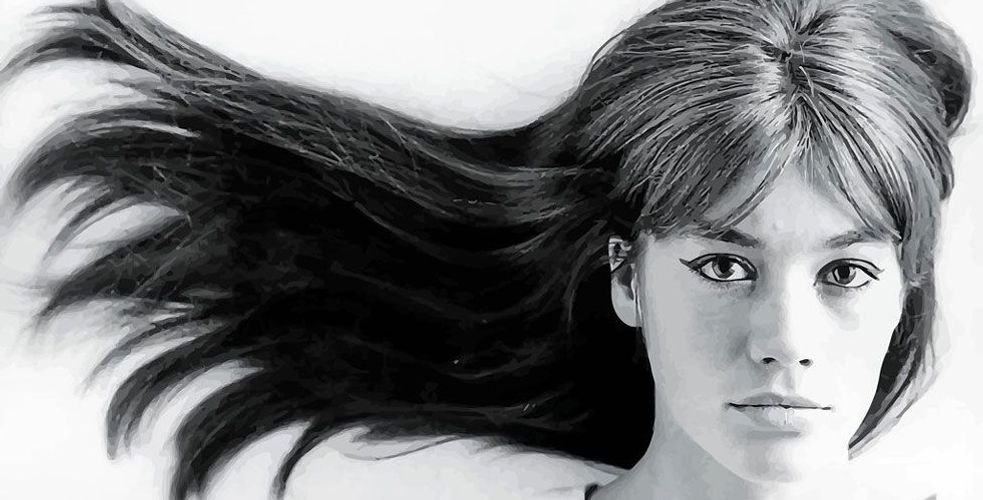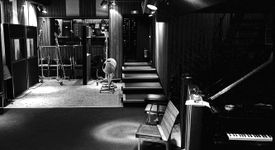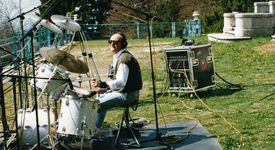"I'm always happy to arrive in the studio". An encounter with Françoise Hardy

Françoise Hardy's death was announced last week by her son, Thomas Dutronc: "Maman est partie" ("Mum's gone"). The muse of the 60s gave us an interview in 2020 about the recording studios that had left their mark on her: CBE, Plus XXX, Guillaume Tell or the lesser-known Poste Parisien, or even Labomatic.
You've recorded in a number of famous Parisian studios, both well-known and lesser-known: Le Poste Parisien, Guillaume Tell, Plus XXX, Michel Berger's studio and Louis Chedid's downstairs studio. Which ones have left you with memorable souvenirs? Why or why not?
In chronological order, the recording studios that were most important to me were the CBE studio with Bernard Estardy, sound engineer extraordinaire; the Plus XXX studio; and Labomatic with the great magician Dominique Blanc-Francard and his wife Bénédicte Schmitt, also a great magician, who partly succeeded him at the console. The most memorable moments were the recordings and the sound engineers. With Bernard Estardy, the vocal feedback in the headphones was so exceptional that the singers who worked with him only wanted to work with him. It was at CBE that I recorded, among other things, the album with my friend Tuca, one of my best.

Plus XXX was my first experience with Gabriel Yared and Claude Sahakian, another great sound engineer, who set up this studio when he had ear problems that forced him to change jobs. I've recorded five albums with Gabriel and three with Claude, but not all at Plus XXX, just one: Tirez pas sur l'ambulance. It's a great privilege to work with artists of this calibre. It was at Plus XXX that, for the recording of his song Mazurka, all the musicians who played the strings stood up at the end of the recording to applaud Gabriel's work.
As for Labomatic, I knew from Serge (Gainsbourg) that he considered Dominique Blanc-Francard to be the best sound engineer there was; and Roland Guillotel had called on him in 1988 to make up for the very bad sound and very bad mixes on my album Décalages, due to the total incompetence of the pseudo-producer and pseudo-sound engineer from England. That's how I met Dominique and I haven't let him go since. What's more, he's particularly pleasant, funny - in fact, he's got all the qualities!

Which ones were you happy with and why?
I'm always happy to go into the studio because it's a magical place where the songs you've worked so hard on, alone at home, are going to see the light of day. Sometimes the music isn't quite right, and it hurts a lot to miss out on a song's potential, but when it's right, I'm totally happy. The studios where I was happiest, I would say: CBE, mainly for the album with Tuca (La Question), in 1970-1971. It remains one of my best albums and was one of the easiest to record because Tuca made me work on his songs every day for a month before going into the studio. Labomatic, for the album L'amour fou, also one of my best, in 2011-2012. It's a great memory because the good understanding with the composers and producers, and the harmony that reigned from start to finish in the studio, made it easier and better for me to sing than usual, and every melody was beautiful and every lyric profound.
It was also at Labomatic in 2003 or 2004 that I recorded a number of tracks with Thomas, who had never produced anything before and who produced several of my songs, including La folie ordinaire, a sublime melody by Ben Christophers in which Thomas's guitar is brilliant. It was in this same studio that I recorded some extraordinary duets with Alain Bashung and Alain Delon, among others: great and wonderful memories! There's also Le Bateau-Lune in Sceaux, which no longer exists, for the recording of Tant de belles choses in 2004, where I worked for the first time with Erick Benzi, a director and a wonderful man who works very quickly and does everything to make the singer feel good.

We read in your autobiography that some sessions were complicated at times; was it because you wanted to go home to spend time with your son (Message personnel) or because the studio musicians or the sound engineer weren't working as you'd hoped?
When I was recording Message personnel, I was pregnant. When, a little later, I recorded his song Je suis moi with Michel Berger, I couldn't go beyond 8 p.m. because Thomas was a baby and I had to get home by that time at the latest to get enough sleep. As the last bottle was at midnight and the first at 6am, this schedule had been agreed between us. Alas, having learnt the song on my own, I made a rhythmic mistake in the very pretty bridge, which made Michel very impatient. I reminded him that I had to go home and he misjudged me at the time. He must have had personal problems because the context was particularly difficult and I don't like to remember that. But that in no way diminished my admiration for him and we remained in friendly contact until the end of his life.
What makes a studio memorable?
The albums recorded there, the artists (the composers, the producer, the sound engineer) involved. It's a whole.
You recorded at ICP, in London and through the years that saw many legendary studios in France come into existence and then die: Davout, Château d'Hérouville, Plus XXX, and so on. Is a studio ultimately more important than a composer or melodist like Jean-Noël Chaléat?
You can't compare a place with a person! A workplace is only as good as the people who work there. The most important thing is the song: its melody first and foremost. It goes without saying that it must be inspired and not fabricated. Then the text, which must express the spirit of the song while respecting the melodic and rhythmic constraints. The last stage, that of production, is more hazardous, and you can always make a mistake in the choice of director, just as the director may not be inspired enough by a beautiful song to be able to magnify it as much as it deserves.

The above interview is taken from the book: Legendary Studios, Secrets and Stories from our French Abbey-Roads.
Studios de Légende, secrets et histoires de nos Abbey Road français
Beautiful book with exclusive photographs. 352 pages. Weight: 1.3kg!
Published by Malpaso-Radio Caroline Média.
45 euros plus shipping fees.






